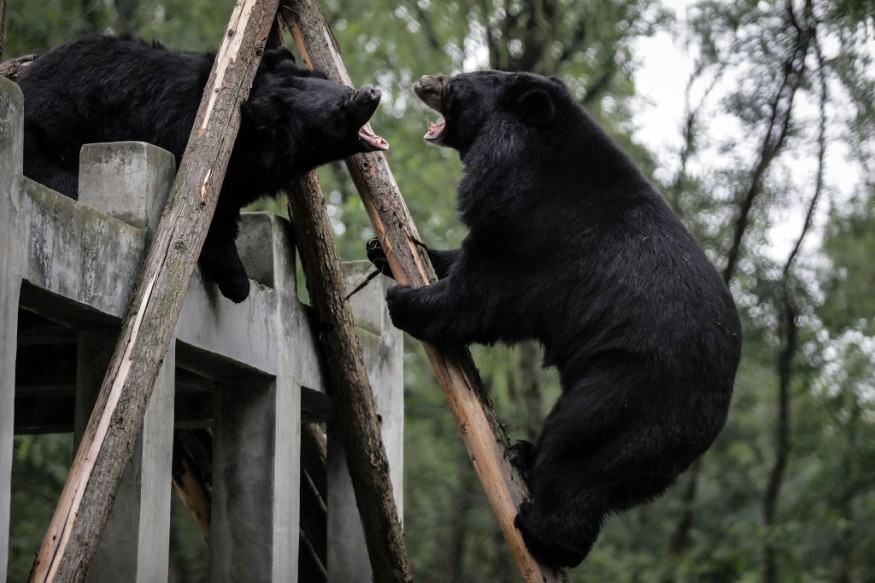The 22 animals cowered in cramped metal cages as American rescuers arrived to save five bear cubs from South Korea.
The Asiatic black bear, often known as the moon bear, was discovered consuming dog food instead of the fruits, grains, and vegetables needed for adequate nutrition.
Gallbladders and bile from 22 Asiatic black bears were extracted and sold as remedies for anything from sore throats to cancer - even, more recently, as a coronavirus therapy.
According to reports, the bears' feet had never touched grass or soil, and they were fed dog chow instead of the veggies, grains, and fruit they needed for good nourishment.
"They lived in the most horrific conditions you can imagine," said Pat Craig, founder and executive director of the Wild Animal Sanctuary in southeastern Colorado, MSN reported.

How Rescuers Saved The Moon Bears
Craig's charitable group rescued the shaggy bears, dubbed "moon bears," because of their golden crescent-shaped marks on their chests. It transported them to Colorado, where they were free to run about, play, and gain weight.
His group used nearly $200,000 in public and private contributions to charter an aircraft and rescued the 22 moon bears this spring. Thanks to cooperation with the Korean Animal Welfare Association in Seoul.
The caged bears were put aboard the plane by South Korean volunteers, and Craig and his staff greeted the flight in Los Angeles. The bears were loaded into trucks and driven continuously to the refuge, roughly 30 miles from Springfield, Colorado.
According to a news statement, the 22 Moon Bears, also known as Asiatic Black Bears, were unloaded into temporary holding facilities when they arrived at the 10,000-acre Baca County site.
Black Bears Enjoy Lasagna, Other Good Food in New Sanctuary
According to Craig, the bears were held in temporary cages with individual dens at the sanctuary for around six weeks to help them adjust to new sounds and scents and get to know their handlers. Then, in April, they were gradually released back into their rough, wooded environment.
ALSO READ : Epidemic Circulating in Koalas Found to be Linked to a Common Virus That Suppresses the Immune System
Joyce Thompson, the refuge's lead veterinarian, said the bears arrived with various diseases, including long-term starvation.
According to her, one of the rescued bears is blind, another has hip arthritis, and a third is missing a front and rear paw. Those bears will be sent to a smaller refuge outside Denver to get particular care.
Craig estimates that each bear consumes 10 to 15 pounds of fresh food, grains, and meat every day. Fresh berries, raw eggs, and salmon are particularly popular for those.
"A deli donated some lasagna to us once, and they really enjoyed that," he said in a Washington Post report. "We place plenty of food throughout the habitat, so there's never any reason for them to fight over it."
Craig has discovered many more people in need of help. Because of years of starvation, the bears weigh 150 to 200 pounds and are approximately half the size of moon bears in the wild.
About Bear Bile Farming
World Animal Protection said South Korea will stop bear bile farming and bile extraction in 2026. Several hundred bears are being imprisoned in awful conditions in the country, even though bile farming is on its way out, Craig noted.
Members of the Korean Animal Welfare Association are paying farmers to feed the bears and keep them alive until they can be transported out of the country by animal rescue groups, according to Craig, who was approached by the organization two years ago for assistance.
RELATED ARTICLE : Farmers Save Extremely Rare Hungarian Pigs That Can Fight Off Bears From Extinction
Check out more news and information on Animals in Science Times.
© 2026 ScienceTimes.com All rights reserved. Do not reproduce without permission. The window to the world of Science Times.












